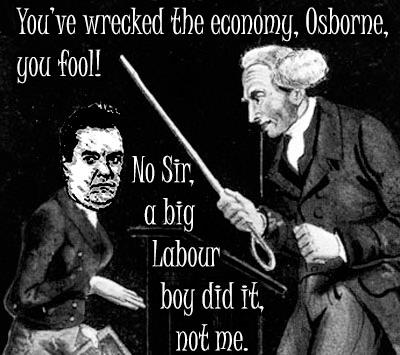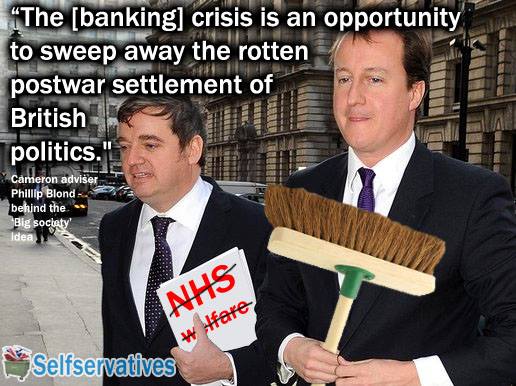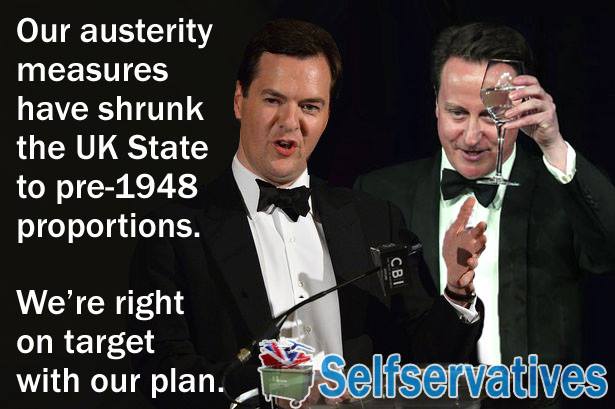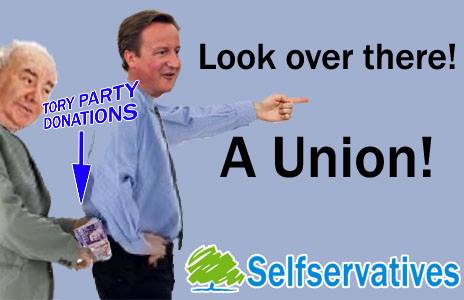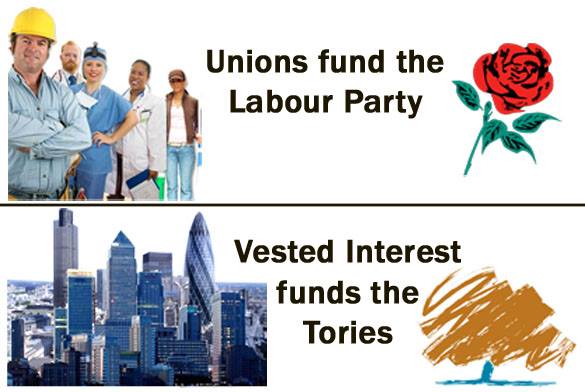
The Transparency of Lobbying, non-Party Campaigning, and Trade Union Administration Bill is a calculated and partisan move to insulate Tory policies and records from public and political scrutiny, and to stifle democracy. The Government’s Lobbying Bill has been criticised by bloggers and campaigners from right across the political spectrum, with the likes of Owen Jones and Guido Fawkes united in agreement over this issue: that the Bill is a “Gagging Act”. Five Conservatives – Douglas Carswell, Philip Davies, David Davis, Zac Goldsmith and David Nuttall – voted against the Bill, whilst others also expressed concerns.
The Bill will treat charities, think tanks, community groups and activists of every hue as “political parties”. From small groups addressing local matters to big national organisations, all equally risk being silenced in the year before a general election, to avoid falling under electoral law. Any organisation spending £5,000 a year and expressing an opinion on anything remotely political must register with the Electoral Commission. Since most aspects of our public life are political, (and a substantial proportion of our private life has been increasingly politicised under this authoritarian Government) this stifles much essential debate in election years when voters should be hearing and evaluating policy choices.
The ambiguous way in which this bill targets anything which may impact on an election is calculated and deliberate. It is a way of intimidating charities, trade unions, religious organisations and all protest groups into remaining silent on important issues (such as protecting the NHS, introducing fair taxation, fighting poverty, public health, education, financial sector reform, civil liberties, human rights, the privatisation agenda) in election years, and this includes European elections and local Council elections too, so it will mean an almost continuous constraint on organisational freedom to comment on politics in any way.
Political blogs may well be at risk of being included too, since they are campaigning entities that potentially attempt to impact the outcome of an election. This is a serious threat to independent politics and an abhorrent authoritarian attempt to silence criticism of the Government, using the threat of fines and imprisonment. Here in the UK, we have a Government very clearly intent on policing critical thinking and opinion.
The National Council For Voluntary Organisations (comprised of a large group of charities) has asked whether this Bill is rushed and badly written or whether it is deliberately intended as a “Trojan horse” in order to curtail the freedom of charities to campaign for their causes. Another 100 charities have also heavily criticised the proposed legislation. There is a broad public consensus that it is indeed calculated and fully intended as a Trojan horse, and it was a view shared widely in Parliament at the hearing of the Bill yesterday.
Trade Unions have reacted in disgust and horror as the scope of the Trojan horse element of the legislation became increasingly clear. Joint cooperation between various unions will be made more difficult to such an extent that the Trade Union Congress will effectively be banned in election years. Another absurd element to the legislation is that the arbitrary spending limit of £390,000 will mean the smaller the Trade Union (or charity, religious group or protest site) the greater their proportional influence will become.
The heads of the main lobbying agencies have attacked the Bill too, claiming that the way the Bill has been designed will mean even less transparency in the lobbying industry and a register of lobbyists with hardly any names on it.
Lansley claimed yesterday that charities raising their concerns about the consequences of the Bill have “over-reacted”, but that view is not substantiated by the rather lethal analysis from the Electoral Commission, which was sent to every MP. Though it will have to enforce the law, the Commission was not consulted on the Bill. The Commission Chair said it has been given far too much discretion in interpreting “political campaigning”, so its decisions are bound to be challenged in law.
The controls “will be impossible to enforce”, and the Commission warns that the Bill greatly widens the range of activities that count as electoral costs – to include rallies, polling research, events, media work, transport and staffing costs for groups never previously regulated. One big danger for risk-averse charities: “it will not be an organisation’s “intent” but the “effect of the expenditure” that sweeps them into electoral law, so they can never know what might be challenged”. The Commission’s warning should alarm every single MP.
Most damning is the Commission’s statement that it will have serious problems interpreting this law because there is no “clear rationale for many of the changes”. That’s very diplomatic and polite, as most of us can see the rationale all too clearly. The Government has attacked so many people via its draconian policies, many are now suffering the brunt of the austerity cuts: a front for Tory ideology. Many organisations and charities see it as a duty to speak up for the causes that people donate to. Whether that’s for the victims of abuse, the homeless, deprived young offenders or victims of crime, it’s always a fine line – but the Charity Commission already polices their politics, and had already installed William Shawcross, a controversial and somewhat right-wing chair. (Despite his previous support for the Labour Party).
So many agree that the Lobbying Bill is a thinly disguised crude gerrymander to try and stymie Labour, the Unions and gag the Government’s most dangerous potential critics. As Frances O’Grady said in the Guardian last month, the law means unions will hit the spending limit just by holding an annual conference in election year, leaving them unable to campaign.
Glenda Jackson summarised it all very tidily yesterday when she said: “The Lobbying Bill is a gagging act, and as it stands it will prevent democratic voices being heard. It’s a step backwards from the codes of conduct and sanctions that already exist”.
Nick Clegg is a prime mover on this Bill, as minister in charge of constitutional reform, and Dennis Skinner humorously and astutely pointed out during the debate yesterday that: “The Liberal Democrats support the lobbying bill because they do not want students campaigning against them over tuition fees in 2015.”
Labour shadow Commons leader Angela Eagle called the bill “one of the worst pieces of legislation I’ve seen any government produce in a very long time”. Referring to Andrew Lansley’s former role as health secretary, she added: “I think the last bill this bad might even have been the Health and Social Care Act, and your fingerprints were all over that one too”.
Although the Chair of the Electoral Commission said that regulators could be forced to take legal action against community groups and activists due to “confusion over their new role”, I don’t think there is any “confusion”.
The Tories are well known historically for their liking for “Gagging Acts”. Paine’s “Rights of Man” reached several hundred thousand readers and in May 1792, the Government reacted with a Royal Proclamation against “seditious writing”. There were Tory-organised local demonstrations of loyalty, including over 300 ritualised burnings of Tom Paine. The Government rushed in the further ‘Gagging Acts’ to tighten the treason statute and to ban large political meetings. A huge petitioning campaign followed, with loyalists expressing support and reformers protesting against the restriction, but the Bills were passed anyway.
In 1819, Lord Liverpool and his Tory Government responded to public outcry regarding the Peterloo Massacre by introducing the extremely oppressive Six Acts, which included gagging the “radical” press, and suppression of rights to public meetings. On the 23rd November, 1819, Lord Sidmouth, the Government ‘s Home Secretary, announced details of what later became the Six Acts. By the 30th December,1819, Parliament had debated and passed the six measures that it hoped would suppress further dissent. There are examples of the Tory tendency for oppressive responses to dissent and criticism littered throughout history.
What we learned from this is that British political culture can be changed fundamentally in the course of resisting authoritarian efforts such as these, and now, we really must do so again.
Lobbying is simply the act of attempting to influence decisions made by officials in the Government, most often legislators or members of regulatory agencies. Lobbying is done by many different types of people and organised groups, including individuals in the private sector, corporations, fellow legislators, Government officials, or advocacy/interest groups.
Although lobbying is often spoken of with contempt, when the implication is that people with inordinate socio-economic power are corrupting the law in order to serve their own interests, another side of lobbying is making sure that the interests of others are duly defended against others’ corruption, or even simply making sure that minority interests are fairly defended against a tyranny of the majority. So there can be elements of power struggles to establish justice involved. Lobbying is therefore a crucial and very valuable part of democracy. Problems arise when some lobbyists are given priority, and come to influence Government policy-making more than others.
Before he became prime minister, Cameron predicted that secret corporate lobbying was “the next big scandal waiting to happen”, adding: “We all know how it works.” As a former lobbyist himself, he certainly did – and he still does.
Cameron’s own election adviser, Lynton Crosby, is a lobbyist for tobacco, alcohol, oil and gas companies. Which is why the prime minister came under attack for dropping curbs on cigarette packaging and alcohol pricing. Then there is Beecroft, the head of the private equity group that administers the high profile barely legal loan shark operation Wonga. The Wonga business model is to prey on the poor, vulnerable and absolutely desperate by offering them exploitative loans at eye-watering interest rates of 5,853% APR. Tellingly, even in the globally renowned haven of free-marketeering – the United States – such outrageous loans are illegal, but in the UK the Tory party are defiantly resisting efforts to regulate the so-called Payday lending sector and introduce maximum APRs.
Cameron’s party treasurer Peter Cruddas resigned after offering access to Cameron for a £250,000 party donation. His defence secretary, Liam Fox, resigned over his relationship with the lobbyist Adam Werritty. Political lobbyists were paid thousands of pounds to help broker a meeting with Liam Fox through Adam Werrity. Bell Pottinger were secretly filmed boasting about its access to the heart of Government, including its ability to persuade Cameron to speak to the Chinese premier on their behalf as well as its exclusive access to figures like William Hague. Let’s not lose sight of the scandals that have prompted this partly diversionary grubby, oppressively partisan policy from the Tories.
Last year the Tory party website openly offered donors the opportunity to attend events where Cameron was present, inviting supporters to join the “premier supporter group”, the Leader’s Group, whose annual membership costs a mere £50,000. (Here is the list of members). So signing up to the group will leave many free to buy direct access to the Prime Minister, other politicians and their advisers.
It’s worth considering that lobbying alone doesn’t begin to cover the extent of corporate influence on Government. The Tory party finds over half of its income from bankers, hedge fund and private equity financiers. Peers who have made six-figure donations have been rewarded with Government jobs. There’s a corruption that is eating our democracy and eroding our public life, and it’s perpetrated not just by lobbyists, but by the politicians, civil servants, bankers and corporate advisers who have increasingly come to swap jobs, favours and insider information, and inevitably come to see their interests as mutual and interchangeable.
The Bill won’t prevent lobbyists walking the corridors of power and speaking in parliamentary debates on the subject on which they work as lobbyists – those such as David Howell, for example, in the news yet again today. George Osborne’s father-in-law was accused of a conflict of interest last night after it emerged he is being paid by a Japanese high-speed rail firm with commercial interests in the UK at the same time as having top-level access to the Foreign Office as William Hague’s personal adviser.He is being paid as a “European consultant” to JR Central, a train company which could be a bidder for multimillion-pound contracts connected to the controversial HS2 rail line.
At least 142 peers linked to companies involved and invested in private healthcare were able to vote on last year’s Health Bill that opened the way to sweeping and corrosive outsourcing and privatisation. Recently, the Tory MP Patrick Mercer resigned the party whip when details of yet another lobbying scandal emerged.
The Tories have normalised corruption and made it almost entirely legal. Our democracy and civic life are now profoundly compromised as a result of corporate and financial power “colonising” the State.
So against this backdrop of their own sleaze, the Tories responded with the anti-democratic Lobbying Bill. If the Tories were had a an ounce of honesty about their anti-democratic intentions, it would be called the “Protection of Corporate Lobbying and Silencing of Legitimate Political Debate and Criticism Bill”.
Or the “Let Lynton Lobby” Bill, as Angela Eagle has dubbed it. The Bill had not been presented to the Select Committee in full until the day before recess, it emerged yesterday. The Electoral Commission hadn’t see the draft either. Cameron is also attempting to limit judicial review. If Select Committees are excluded from the legislative process, a case can be challenged under judicial review as that means the legislation is being created on an undemocratic and procedurally unfair basis. Select Committees are part of the constitutional area of law making, they simply cannot be ignored.
The withholding of key details of drafted Bills from Select Committees means that effective and organised challenging from the opposition is stifled, too. We most certainly have an authoritarian Government that arrived unannounced and unauthorised, one that has very clearly spent some time out of Office rather vindictively planning an attack on civil society, reversing the gains of our post-war settlement, and preemptively dismantling the means of redress. The contents of the Lobbying Bill highlight this further. This was a carefully calculated move, and such tactics have become increasingly common since this Government took Office. It would be an enormous mistake, if not academic dishonesty, to pretend that we now live in a liberal democracy.
The Government has left a large loophole in this legislation that allows the likes of Crosby to get around being on the register. When was the last lobbying scandal we read about that involved Oxfam, Vox Political, or the Durham Miners Gala? The Lobbying Bill won’t do a thing to stop the revolving doors between Government and corporate interests (Wonga being a high profile example of this), and neither will it prevent corporate interest parties being invited to actually write Government legislation on their behalf.
“Recent freedom of information requests reveal that Treasury officials met fracking industry representatives 19 times in the last 10 months about their generous tax breaks, yet the public are denied any further details of that lobbying on the grounds that it could prejudice commercial interests,” said Green MP Caroline Lucas. “Is the Leader of the House not ashamed that this Bill will drastically curtail the ability of charities to campaign in the public interest on issues such as fuel poverty and energy but do nothing to curb such secretive corporate influencing? The Bill does nothing to prevent lobbyists working directly for commercial concerns from approaching government ministers and trying to influence them”.
Part three of the Bill centres on trade union membership records, Angela Eagle and Caroline Lucas agreed that there appears to be no policy motive for the introduction of this new law other than as a vehicle for cheap, partisan attacks on the trade unions, of which only a minority are actually affiliated to the Labour party. During a belated consultation meeting with the TUC – it took place after the Bill had been published – Department for Business, Innovation and Skills officials could cast no light on why part three exists at all.
Nor were they able to explain the origin of these proposals beyond their oft-repeated mantra that the provisions contained in part three: “It came out of a high level meeting between the Prime Minister and the Deputy Prime Minister. I think that revelation tells us all we need to know about the grubby, partisan nature of the measures “ – Caroline Lucas
The contents of this Bill are all about stifling essential democratic debate, and stymying legitimate criticism of the Government, and that in itself is actually frightening. But it’s also important not to lose sight of how this Draft has progressed, or rather, has been sneaked along to a second hearing. As I stated, the Lobbying Bill was NOT presented to the Parliamentary Committee in full until 1 day before recess. In fact the Committee was presented initially with only the Consultation, and with no details of the Bill, for scrutiny. There has been NO pre-legislative scrutiny of this Bill.
This Bill has been entirely deviously constructed by a spiteful and self-serving, anti-democratic Government. That this same Government no longer deems it necessary to be accountable for its policies, and is by-passing democratic processes and legal safeguards, is frankly terrifying. We really do have an oppressive, authoritarian Government. Consider how likely is it that will this Bill will affect the likes of Rupert Murdoch’s News Corp UK and the Daily Mail Group, because they spend a huge amount amount per day, and much of the content of the press is highly political in nature.
Surely if charities and trade unions are going to have their freedom of speech curtailed to just £390,000 worth of influence, the mainstream press must be curtailed in the same way. Of course that won’t happen because the Tories are quite happy to have the baying right-wing press supporting their every step towards absolute tyranny. The press will most likely be exempt, because the Tories wouldn’t want to interfere with the (particular) “freedom” of the press. (Unless of course they object to specific information being made accessible to the public, in which case, they may demand that particular newspapers smash up their hard drives, whilst government officials intimidate the families of journalists by arresting them under “anti-terrorism” legislation.)
How did we get here? How could we be facing such tyrannical constraints on our most fundamental liberties, and it has happened so very quickly, too.
Paulo Freire said “Men and women develop their power to perceive critically the way they exist in the world with which and in which they find themselves; they come to see the world not as a static reality but as a reality in the process of transformation.” – Pedagogy of the Oppressed.
This insight offers us – and all of those who experience subordination through any imposed regime – a path through which we come to understand what it means to be a moving, shared cultural voice in a Society that is being constructed by the tyranny of a few to hold us still and in place like an object.
It is a learning process that always involves pain and hope; a process through which, as forced cultural jugglers, we can come to, cooperatively and subjectivity, organising and transcending our object position in a Society that hosts us, yet is becoming alien. It’s up to us to reclaim it, to make it our own. And to rebuild if we have to. I believe that history is built upon possibilities and human potential. We simply cannot allow this Government to foreclose and reduce that.
More reading:
Petition against Bill.
Independent – Report calls for withdrawal of Government’s lobbying reforms.
Owen Jones: Under the disguise of fixing lobbying this bill will crush democratic protest.
Mike Siver: Free speech is under threat.

A big thank you to Robert Livingstone for his superb art work
